Out of every book we have read so far, Monster is my favorite. I thought the way this one was written was excellent and I felt that this was most successful in tackling a difficult issue in a way that we can easily teach our students.
Hade's article was also beneficial to read after reading the novel. I appreciated his noting that a white illustrator drawing a black family eating watermelon is shown as irresponsible, because that person is just using stereotypes. I think that authors do that frequently, whether they are whites writing about different races (like the Native American example he gives in the article) or men writing about women, or rich writing about the poor. These authors use stereotypes to provide readers with an image of their characters because they do not know enough about the kinds of people they write about to portray something more accurate.
One of the things I loved most in Monster was that it was told from Steve's POV, and it seemed realistic to me (though after reading Hade's article, maybe I am too uneducated to know if that is realistic or not.) In this book, the black characters were not all portrayed as uneducated, lazy, and vulgar. Some, yes, used poor English when they spoke, but the majority of what we read was well-written and well-spoken. Also, Hade's idea that sometimes multiculturalism seems very forced in books has a lot of merit. In Monster, though, it seemed very natural because it was integral to the novel.
I found it interesting that Steve describes the one detective as a light-skinned black man. The sentence echoed society's opinion to me. The fairer the skin of the black man, the better he must be, right? (This in turn made me think of Chris Rock's new movie coming out, Good Hair. Black women try to make their hair look as "white" as possible... Beyonce, anyone?)
Anyway, back on topic... I thought he must have noted that the detective was light-skinned for a reason. Clearly, he could not be in as successful a position if his skin were a few shades darker. And even though he is successful, he's not in charge. (Think also of characters in Cold Case, Law & Order: SVU.)
The ending felt very real to me. The whole time, Steve's lawyer is telling him "The jury has all the information they need, just by looking at you" but she makes it seem like she is past the prejudices. Then, at the end, she has won her case and turns her back on Steve when he wants to give her a thank-you hug. It shows that even though people can say they are not prejudiced, when it comes down to it they often harbor negative feelings toward people who are different.
As Hade points out, this isn't just done with race. So many people will give money to charities but won't shake hands or talk to someone who is homeless and on the streets. In fact, many people send their money in an envelope to a big organization instead of going downtown and volunteering an hour in a homeless shelter's food line. Plus, men and women are constantly stereotyping each other because they cannot really imagine what it is like to live in the other sex's shoes. I know this is going to be stereotyping and overgeneralizing, but bear with me. Men don't think women know anything about cars or sports. At my part time job, I find myself in excited conversations about sports all the time. My one coworker is a huge Phillies fan and I am a huge Colts fan. She will often tell me about great plays that she has seen at the games, and I will do my best to teach her about football, and to explain to her that a "first down" is not the one yard line. Our customers always end up laughing because there we are, two girls, talking about sports. One of my former coworkers, a male I will refer to as "E" wrote on one of my recent facebook status updates that girls aren't allowed to play fantasy football, because I didn't know the name of the quarterback on my fantasy oponent's team. Yet guys are supposed to get really into fantasy football, but half the guys in our league didn't bother to update their starters for this past week's game, even though their starters all had a bye week.
I know that was rambling, but that just really got to me this week, and after reading Hade's article I think we can all think about a time when we have been victims of a misunderstanding of different "cultures."
What Do You Mean No More Books?!?!
14 years ago
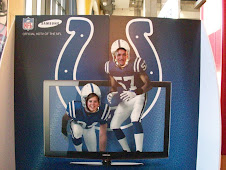
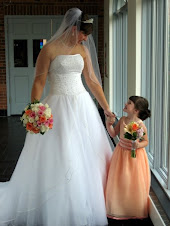
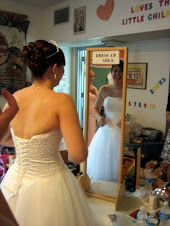
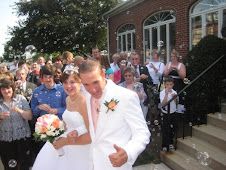



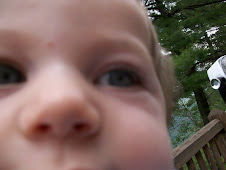
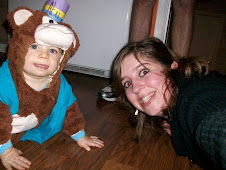





I should add this... I just started writing a new short story and am paranoid it will be blasted for not being authentic enough... My character isn't really much like me.
ReplyDeleteAlso, I was just thinking about how readers need to be able to relate to the character's status, class, etc. It made me think back to Forever and how it was hard for me to relate to Kath.
I like your comment about the people who would rather send their money to big organizations then help out in a soup kitchen or homeless shelter. This is so true and it angers me to no end. It all fits into prejudice and I'm glad that you pinpointed this topic.
ReplyDeleteI never really thought that much in detail just how much we are misunderstood daily. I guess we all can relate to Steve because no one got to know him and judged him for what he looks like, which is something that happens daily. I think everyone judges, its just if you let your judgment overtake you getting to know someone that is wrong. Do you think the jury judged Steve?
ReplyDeletePaige, I think the jury wanted someone to blame for this crime; don't we all want someone to blame? When I was reading the book, I thought, "I bet King goes to jail, but Steve is acquitted". I thought this because someone had to go to jail, King fit the "profile", so he went; Steve was young, and I don't think the jury could stomach the guilt of sending him to prison.
ReplyDelete